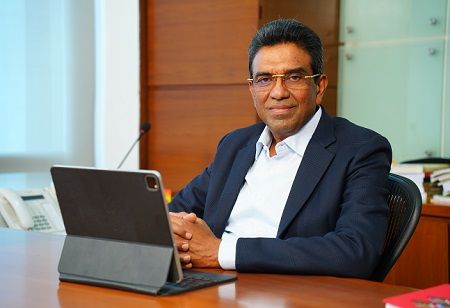
In a recent interaction with Industry Outlook magazine, M Prabhakar Rao, Chairman and Managing Director, Nuziveedu Seeds shares his views on the current landscape of seed production in India, particularly in terms of sustainability and alignment with environmental goals, the emerging trends that are shaping this industry and more.
The Indian seed industry is dynamic and supports the cultivation of around 200 million hectares of crops across seasons. Remarkably, less than 1 percent of the seeds needed by our country is imported and this highlights the self-sufficiency of India. While hybrid seeds are planted on approximately 35 million hectares, the remaining areas are used for open-pollinated varieties. Seed production that occurs in open fields under contractual agreements with farmers is monitored closely by seed companies for ensuring optimal yields & quality.
Though aligned broadly with those of general farmers, the industry’s sustainability practices are implemented rigorously owing to close supervision. With efforts to optimize water usage, water conservation is a priority. Also, the usage of chemical fertilizers is minimized and these are supplemented by biological interventions. IPM (Integrated Pest Management) techniques are implemented for reducing chemical pesticide usage. However, the most significant contribution of the seed industry is its contribution to sustainability which extends beyond seed production.
Major seeds companies in the country are heavily invested in breeding crops that align with sustainability goals and this comprises developing drought-tolerant varieties that can flourish with less amount of water & endure climate change-induced dry spells. Furthermore, the breeding efforts mainly focus on improving resistance to pests as well as diseases, and this decreases reliance on chemical pesticides. The innovation of the seed industry in the crop genetics have a huge impact on the Indian agriculture sector despite occupying only 0.5 to 0.6 per cent of the total cropped land. This innovation drives the adoption of sustainable practices across the nation. The seed industry plays a major role in balancing productivity with environmental sustainability, by developing crops which require fewer nutrients, less water, and more biological inputs.
Advancements in agricultural technology are revolutionizing the industry specifically in seed production. When compared to the conventional procedures, drip irrigation is adopted widely now which helps in decreasing water usage by 50 to 60 percent. Mechanical transplanting and planters are boosting crop productivity and this allows for higher crop yields with same fertilizer doses. Also, drones are employed for spraying insecticides & fungicides. The are also used for monitoring detaselling operations in maize which helps to ensure high genetic purity in hybrids. Furthermore, remote sensing utilizing spectral signatures, monitors crop health and renders disease prevention recommendations to farmers, while geo tagging helps in tracking seed production plots, accurately. Additionally, in hybrid seed production, pilot robotics are being tested for pollination. Also, farmers are encouraged to practice green manuring as well as adopt charcoal-making techniques in order to improve the soil carbon content, as these help in enhancing soil health and microbial activity.
Seed production is significantly more intensive than commercial crop cultivation, which requires greater investment & expertise. For instance, the production of cotton seeds or rice requires more technology and resources when compared to growing these crops commercially. Therefore, seed-growing farmers today are highly tech-savy and this often leads to adoption of sustainable practices which are guided closely by seed firms that monitor each plot meticulously.
Water use efficiency is improved greatly via drip irrigation as well as precise irrigation scheduling at critical growth stages leading to reduction in overall water needs. Moreover, drought-tolerant crop varieties further improving water efficiency.
Seed treatments with the use of biological inoculants are leveraged for helping crops to convert the unavailable soil nutrients into usable forms via symbiotic relationships with microbes, that help in reducing the need for chemical fertilizers. Also, the seed industry is committed to fair trade practices which helps in ensuring that farmers receive fair value and eliminate child labor, as well as pay proper wages to the laborers. These efforts underscore the dedication of the seed industry to sustainability & ethical practices.
The surge in demand for agricultural commodities specifically food is accompanied by alarming soil degradation as well as depletion of ground water resources and this makes sustainable agriculture not just essential but also boosts crop production and helps in conserving soil & water. As we strive for meeting the surging demands, including those for biofuels such as ethanol – where the country is progressing successfully towards twenty percent blending in petrol, we must also ensure that our soils stay fertile & the groundwater is responsibly managed.
Adopting sustainable practices which include watershed management, groundwater recharge & drip irrigation is imperative. Through the breeding of high-yield, nutrient-rich varieties we should also focus on enhancing soil health & crop productivity. Recent efforts by the industry and the government emphasize improving zinc, iron as well as protein levels in crops, unlike a decade ago when nutritional content was often overlooked.
We are moving in the right direction by shifting towards biological solutions for replacing chemical fertilizers and pesticides and by prioritizing soil & water conservation. This approach helps in ensuring that we can meet future demands sustainably, with healthier soils, more nutritious crops as well as better-managed water resources.
We use cookies to ensure you get the best experience on our website. Read more...